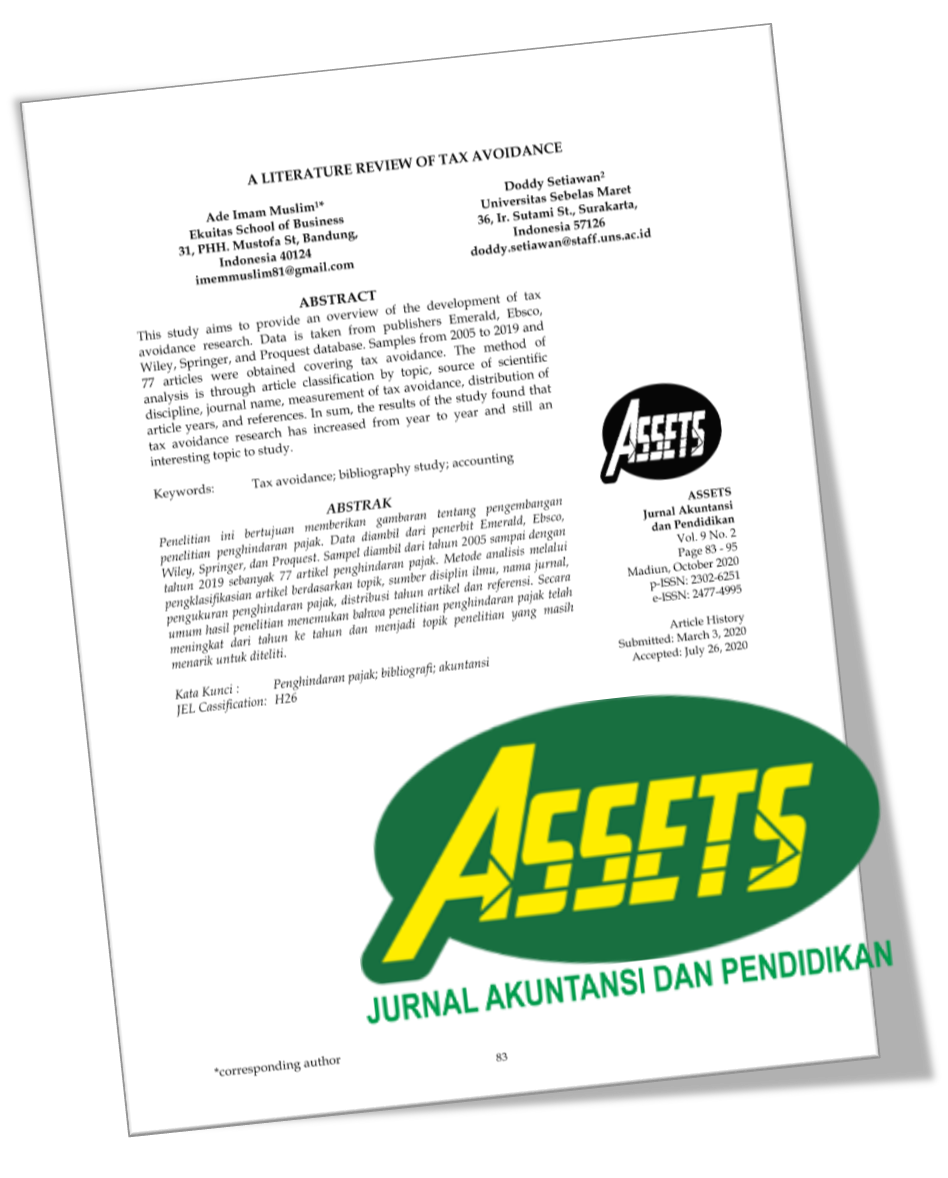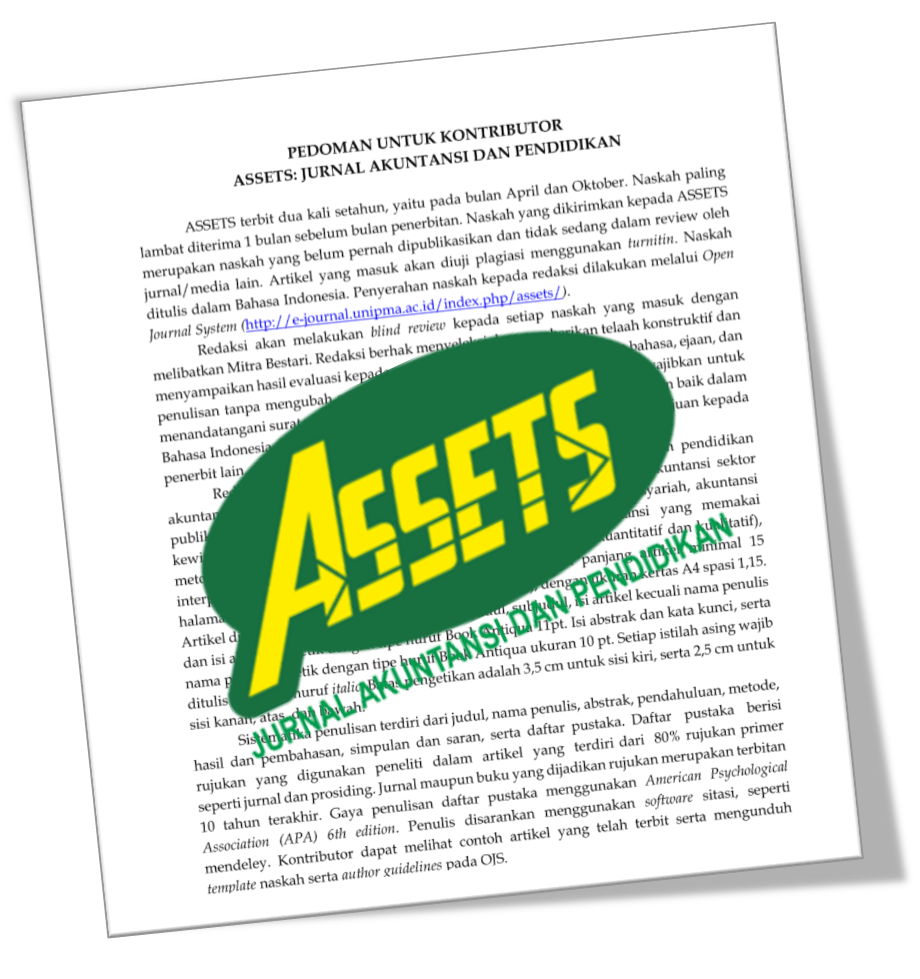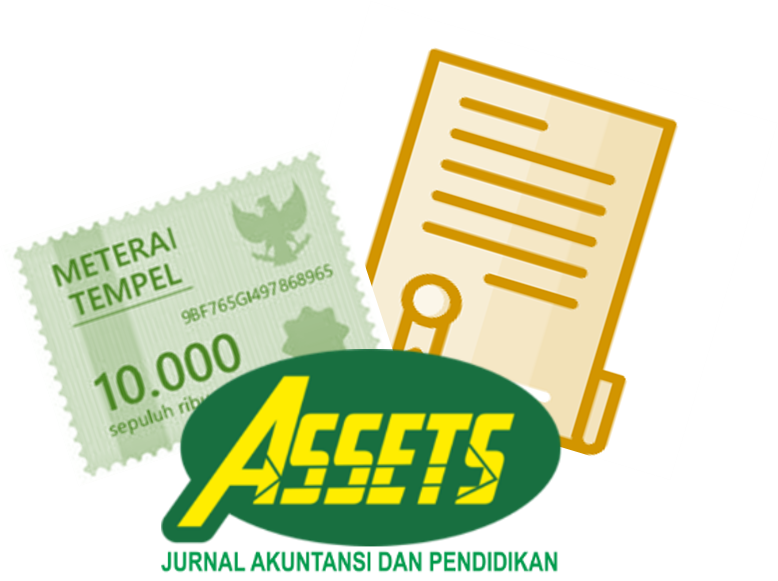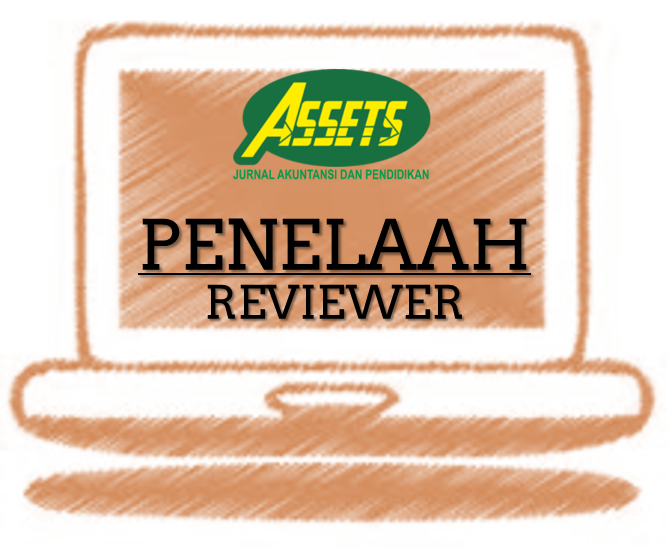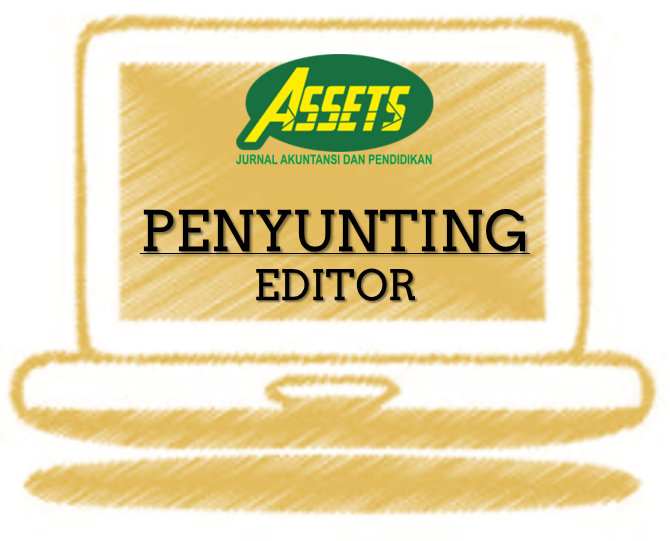ACCOUNTABILITY ANALYSIS OF REGIONAL FINANCIAL AND ASSET MANAGEMENT AGENCY
DOI:
https://doi.org/10.25273/jap.v12i2.12104Keywords:
TMP Opinion, Regional Fixed Asset Management, Accountability, Regional Financial and Asset Management Agency (BPKAD), Opini TMP, Pengelolaan Aset Tetap Daerah, Akuntabilitas, Badan Pengelolaan Keuangan dan Aset Daerah (BPKAD)Abstract
ABSTRACT
The focus of the research is to analyze the accountability of the Regional Financial and Asset Management Agency (BPKAD) of Jember Regency in managing regional fixed assets. This research also seeks information regarding the obstacles faced by BPKAD Jember Regency in managing regional fixed assets. This research uses a case study approach qualitative method. The research was explored further by analyzing the interview results with four participants who work in the local government environment and several members of the general public in the Jember Regency. This research shows that BPKAD Jember Regency has fulfilled two of the four accountabilities. Then, the obstacles faced by BPKAD Jember Regency are divided into three, namely technical, internal, and external.
ABSTRAK
Menganalisis akuntabilitas Badan Pengelolaan Keuangan dan Aset Daerah (BPKAD) Kabupaten Jember dalam mengelola aset tetap daerah menjadi tujuan utama dari penelitian ini. Selain itu, penelitian ini juga mencari informasi mengenai kendala-kendala yang dihadapi BPKAD Kabupaten Jember dalam pengelolaan aset tetap daerah. Penelitian ini menggunakan metode kualitatif dengan pendekatan studi kasus. Temuan dari penelitian ini dieksplorasi dari hasil wawancara dengan empat orang partisipan yang bekerja di lingkungan pemerintah daerah dan beberapa masyarakat umum Kabupaten Jember. Penelitian ini menunjukkan bahwa BPKAD Kabupaten Jember telah memenuhi dua dari empat akuntabilitas yang ada. Kemudian, untuk kendala yang dihadapi oleh BPKAD Kabupaten Jember terbagi menjadi tiga yaitu teknis, internal, dan eksternal.
Downloads
References
Almquist, R., Grossi, G., van Helden, G. J., & Reichard, C. (2013). Public sector governance and accountability. Critical Perspectives on Accounting, 24(7–8), 479–487. https://doi.org/10.1016/j.cpa.2012.11.005
Asongu, S. A., Adegboye, A., Ejemeyovwi, J., & Umukoro, O. (2021). The mobile phone technology, gender-inclusive education and public accountability in Sub-Saharan Africa. Telecommunications Policy, 45(4), 102108. https://doi.org/10.1016/j.telpol.2021.102108
Balmaceda, F. (2021). Private vs. public communication: Difference of opinion and reputational concerns. Journal of Economic Theory, 196, 105314. https://doi.org/10.1016/j.jet.2021.105314
BPK. (2020). Laporan Hasil Pemeriksaan Atas Laporan Keuangan Pemerintah Kabupaten Jember Tahun 2019.
BPK RI. (2020). Ikhtisar Hasil Pemeriksaan (IHPS) I Tahun 2020. Ikhtisar Hasil Pemeriksaan Semester I Tahun 2020. https://www.bpk.go.id/ihps
Chavez, M., Perez, M., Tunney, C., & Núñez, S. (2017). Accountability and transparency diluted in the Flint water crisis: A case of institutional implosion. Norteamerica, 12(1), 11–52. https://doi.org/10.20999/nam.2017.a001
Cooper, S. M., & Owen, D. L. (2007). Corporate social reporting and stakeholder accountability: The missing link. Accounting, Organizations and Society, 32(7–8), 649–667. https://doi.org/10.1016/j.aos.2007.02.001
Creswell, J. W. (2014). Research Design, Qualitative, Quantitative, and Mixed Methods Approaches, Fourth Edition (Fourth). SAGE Publication.
Febrianti, P., Nurwani, & Nurlaila. (2023). Analysis Of Regional Fixed Asset Management At The Regional Financial and Asset Management Agency (BPKAD) In Medan. JHSS (Journal of Humanities and Social Studies), 07(01), 289–294. https://doi.org/https://doi.org/10.33751/jhss.v7i1.8584
Febriyanto, S. A. (2022). Menguji Legalitas Pemakzulan Bupati Jember. Al-Adalah: Jurnal Hukum Dan Politik Islam, 7(1), 01–31. https://doi.org/10.35673/ajmpi.v7i1.1663
Frink, D. D., & Ferris, G. R. (1998). Accountability, Impression Management, and Goal Setting in the Performance Evaluation Process. Human Relations. https://doi.org/https://doi.org/10.1177/001872679805101003
Gibbs, G. . (2007). Analyzing qualitative data (U. Flick (ed.)). SAGE Publication.
Gray, R., Brennan, A., & Malpas, J. (2014). New accounts: Towards a reframing of social accounting. Accounting Forum, 38(4), 258–273. https://doi.org/10.1016/j.accfor.2013.10.005
Gray, R., Dey, C., Owen, D., Evans, R., & Zadek, S. (1997). Struggling with the praxis of social accounting: Stakeholders, accountability, audits and procedures. Accounting, Auditing & Accountability Journal, 10(3), 325–364. https://doi.org/10.1108/09513579710178106
Hodgkinson, A. (1991). Productivity measurement and enterprise bargaining - the local government perspective. International Journal of Public Sector Management, 12(6), 470–481. https://doi.org/https://doi.org/10.1108/09513559910301342
Hopwood, A., & Tomkins, C. (1984). Issues In Public Sector Accounting. Oxford: Philip Allan.
Hyndman, N., & McGeough, F. (2008). NPM AND PERFORMANCE MEASUREMENT: A COMPARATIVE STUDY OF THE PUBLIC SECTORS IN IRELAND AND THE UK. The Irish Accounting Review, 15(2), 29–58.
Kholmi, M., Triyuwono, I., Purnomosidhi, B., & Sukoharsono, E. G. (2015). Phenomenology Study: Accountability of a Political Party in the Context of Local Election. Procedia - Social and Behavioral Sciences, 211(September), 731–737. https://doi.org/10.1016/j.sbspro.2015.11.094
Mac Donald, K., Rezania, D., & Baker, R. (2020). A grounded theory examination of project managers’ accountability. International Journal of Project Management, 38(1), 27–35. https://doi.org/10.1016/j.ijproman.2019.09.008
Murphy, J., & Albu, O. B. (2018). The politics of transnational accountability policies and the (re)construction of corruption: The case of Tunisia, Transparency International and the World Bank. Accounting Forum, 42(1), 32–46. https://doi.org/10.1016/j.accfor.2017.10.005
Ndoda, Y., Oiladang, C. E., Seran Klau, R., Kunci, K., Desa, D., & Kori, D. (2021). Akuntabilitas Alokasi Dana Desa Di Desa Kori Kecamatan Kodi Utara Kabupaten Sumba Barat Daya 2018. Jurnal Ilmiah Ilmu Pemerintahan (Moderat), 7(1), 78–100.
Rahayu, S. (2018). How to improve accountability of fixed assets of local government ? Jurnal Perspektif Pembiayaan Dan Pembangunan Daerah, 6(2), 195–204.
Rana, T., & Hoque, Z. (2020). Institutionalizing multiple accountability logics in public services: Insights from Australia. British Accounting Review, 52(4), 100919. https://doi.org/10.1016/j.bar.2020.100919
Rasche, A., & Esser, D. E. (2006). From stakeholder management to stakeholder accountability. Journal of Business Ethics, 65(3), 251–267. https://doi.org/10.1007/s10551-005-5355-y
Saadah, R. A., & Priyono, N. (2021). Analisis Implementasi Siklus Dan Prosedur Pengelolaan Aset Tetap Di BPKAD Kota Magelang. Jurnal Penelitian Ekonomi Dan Akuntansi (JPENSI), 6(19), 21–33.
Saldanha, D. M. F., Dias, C. N., & Guillaumon, S. (2022). Transparency and accountability in digital public services: Learning from the Brazilian cases. Government Information Quarterly, 39(2), 101680. https://doi.org/10.1016/j.giq.2022.101680
Sinclair, A. (1995). The Chameleon Of Accountability : Forms And Discourses. Accounting, Organizations and Society, 20(2), 219–237.
Starling, G. (2008). Managing the Public Sector 8th edition. Cengage Learning.
Tan, E., Mahula, S., & Crompvoets, J. (2022). Blockchain governance in the public sector: A conceptual framework for public management. Government Information Quarterly, 39(1), 101625. https://doi.org/10.1016/j.giq.2021.101625
Wicaksono, K. W. (2015). Akuntabilitas Organisasi Sektor Publik. JKAP (Jurnal Kebijakan Dan Administrasi Publik), 19(1), 17. https://doi.org/10.22146/jkap.7523
Downloads
Additional Files
Published
Issue
Section
License
Perjanjian Lisensi dan Hak Cipta
Saat mengirimkan naskah ke jurnal, penulis menyatakan bahwa:
- Mereka diberi wewenang oleh rekan penulisnya untuk masuk ke dalam perjanjian ini.
- Karya yang dimaksud belum pernah diterbitkan secara resmi sebelumnya, kecuali dalam bentuk abstrak atau sebagai bagian dari kuliah, resensi, tesis, atau overlay jurnal yang diterbitkan.
- Karya yang dimaksud tidak sedang dipertimbangkan untuk diterbitkan di tempat lain,
- Publikasi karya yang dimaksud telah disetujui oleh semua penulis dan oleh otoritas yang bertanggung jawab - secara tahu sama tahu atau eksplisit - dari lembaga tempat pekerjaan itu dilakukan.
- Mereka mengamankan hak untuk mereproduksi materi apa pun yang telah diterbitkan atau dilindungi hak cipta di tempat lain.
- Mereka menyetujui lisensi dan perjanjian hak cipta berikut.
Hak Cipta
Penulis yang menerbitkan dengan ASSETS: Jurnal Akuntansi dan Pendidikan menyetujui persyaratan berikut:
- Penulis mempertahankan hak cipta dan memberikan jurnal hak publikasi pertama dengan karya yang secara bersamaan dilisensikan di bawah Lisensi Atribusi Creative Commons (CC BY-SA 4.0) yang memungkinkan orang lain untuk berbagi karya dengan pengakuan kepenulisan karya dan publikasi awal di jurnal ini.
- Penulis dapat masuk ke dalam pengaturan kontrak tambahan yang terpisah untuk distribusi non-eksklusif dari versi jurnal yang diterbitkan dari karya tersebut (misalnya, mempostingnya ke repositori institusional atau menerbitkannya dalam sebuah buku), dengan pengakuan publikasi awalnya di jurnal ini.
- Penulis diizinkan dan didorong untuk memposting karya mereka secara daring (misalnya di repositori institusional atau di situs web mereka) sebelum dan selama proses pengiriman, karena dapat menghasilkan pertukaran yang produktif, serta kutipan lebih awal dan lebih besar dari karya yang diterbitkan.
License and Copyright Agreement
In submitting the manuscript to the journal, the authors certify that:
- Their co-authors authorize them to enter into these arrangements.
- The work described has not been formally published before, except as an abstract or part of a published lecture, review, thesis, or overlay journal.
- That it is not under consideration for publication elsewhere,
- That its publication has been approved by all the author(s) and by the responsible authorities – tacitly or explicitly – of the institutes where the work has been carried out.
- They secure the right to reproduce any material already published or copyrighted elsewhere.
- They agree to the following license and copyright agreement.
Copyright
Authors who publish with ASSETS: Jurnal Akuntansi dan Pendidikan agree to the following terms:
- Authors retain copyright and grant the journal right of first publication with the work simultaneously licensed under a Creative Commons Attribution License (CC BY-SA 4.0) that allows others to share the work with an acknowledgment of the work's authorship and initial publication in this journal.
- Authors can enter into separate, additional contractual arrangements for the non-exclusive distribution of the journal's published version of the work (e.g., post it to an institutional repository or publish it in a book), with an acknowledgment of its initial publication in this journal.
- Authors are permitted and encouraged to post their work online (e.g., in institutional repositories or on their website) before and during submission, as it can lead to productive exchanges and earlier and more extraordinary citations of published work.

ASSETS: Jurnal Akuntansi dan Pendidikan is licensed under a Creative Commons Attribution-ShareAlike 4.0 International License.


